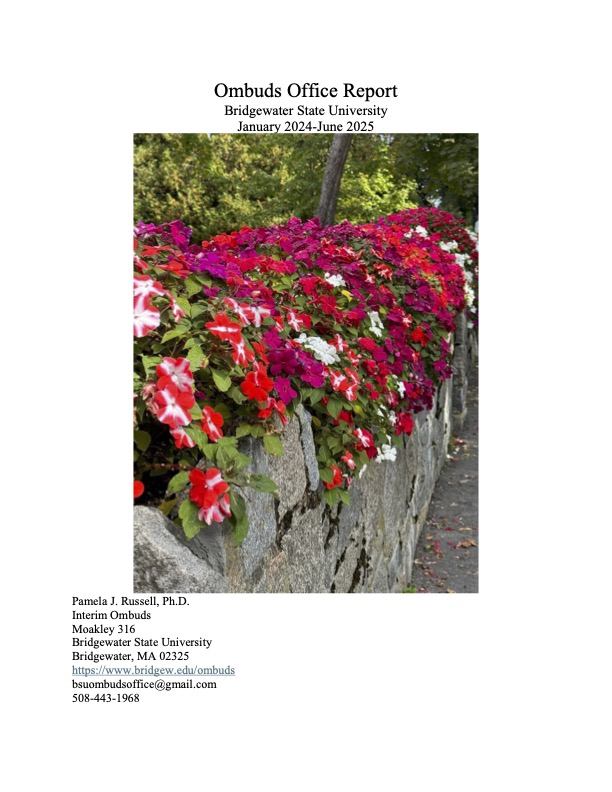What is an Ombuds?
The Ombuds provides a confidential nonjudgmental space for faculty, librarians, and staff* to ask questions, express concerns, and surface problems. The Ombuds helps you untangle complex issues and generate approaches and options for conflict resolution.
Ombuds work addresses the specific experiences of each visitor and approaches conflict management with dignity, fairness, and equity. The BSU Ombuds is a confidential resource, not an official reporting pathway nor a place to put the institution on notice. When you talk to the Ombuds, your concern is handled “off the record.”
The work of the Ombuds is confidential, impartial, informal and independent.
*Staff refers to all staff except Sodexo employees, Follet Book Store employees, and student employees.
Your Visit: What to Expect
Intake. The Ombuds brief intake process collects information that allows a follow up with you and statistical information that we collect about our work. Any identifying information is confidential. We also review our standards of practice and answer any questions you have.
Conversation. Next, you will share the concerns that brought you to the Ombuds Office. The Ombuds may ask questions to deepen their understanding of your concern, but mostly the Ombuds listens without judgment or bias.
Options & Coaching. The Ombuds works with you to develop options to help you resolve your concern. We can clarify relevant university policies, procedures, and norms. We can identify or share available resources or explain the process for making a formal complaint. We can serve as a conflict coach — helping you outline talking points, draft an email, or develop a plan of action. Sometimes we can help by making an anonymous inquiry, serving as an intermediary or impartial facilitator. You and the Ombuds will discuss and weigh your options so that you can determine how you want to proceed. You will decide whether or when to take any next steps.
Non-Identifying Data. When your matter is concluded, the Ombuds will enter non-identifying data into the Ombuds database and shred any informal notes the Ombuds may have taken. Each year, the Ombuds aggregates the non-identifying information and issues an annual report summarizing the types of concerns brought to the office.
What We Do/Don’t Do
We do:
- Listen to your concerns without judgment
- Provide you with an impartial perspective and help you identify underlying issues
- Work with you to devise and consider a range of options and resources
- Help you prepare for difficult conversations and open avenues of communication
- Help you understand and navigate university policies and procedures
- Provide informal facilitated or mediated conversations
- Bring broad organizational issues and trends to the attention of campus leaders
We don’t:
- Take sides or decide who is right/wrong in a conflict or concern
- Maintain or provide records that identify you
- Participate in formal investigations or processes
- Provide legal advice or psychological counseling
- Advocate on your behalf
- Enforce, revise, or rescind existing policies, regulations, or laws

Ombuds Office Report
2024-2025
The Bridgewater State University (BSU) Ombuds Office opened to serve faculty in January
2024. This report reviews the office's first year of operation at BSU.